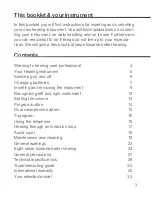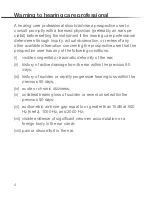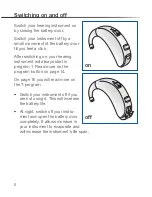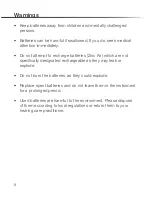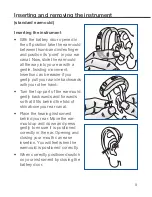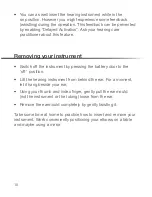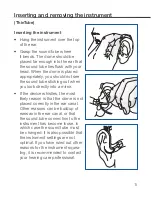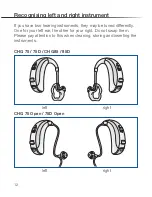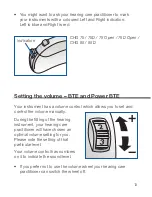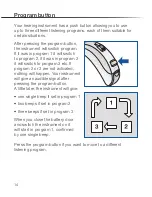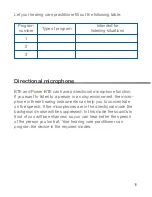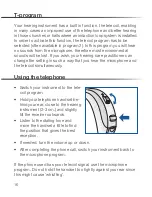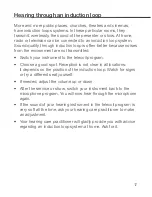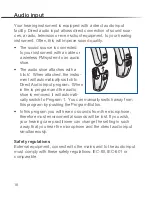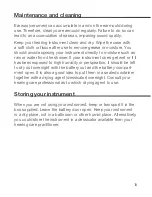
4
Warning to hearing care professional
A hearing care professional should advise a prospective user to
consult promptly with a licensed physician (preferably an ear spe-
cialist) before setting the instrument if the hearing care professional
determines through inquiry, actual observation, or review of any
other available information concerning the prospective user that the
prospective user has any of the following conditions:
(i) visible congenital or traumatic deformity of the ear;
(ii) history of active drainage from the ear within the previous 90
days;
(iii) history of sudden or rapidly progressive hearing loss within the
previous 90 days;
(iv) acute or chronic dizziness;
(v) unilateral hearing loss of sudden or recent onset within the
previous 90 days;
(vi) audiometric air-bone gap equal to or greater than 15dB at 500
Hz (hertz), 1000 Hz, and 2000 Hz;
(vii) visible evidence of significant cerumen accumulation or a
foreign body in the ear canal;
(viii) pain or discomfort in the ear.



